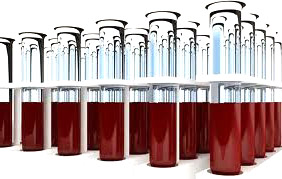Blood works understanding result
 Published: 21 May 2024
Published: 21 May 2024
Importance of Blood Tests
Blood, being the primary circulatory fluid in the body, also plays a vital role in hydraulic functions. Blood tests provide valuable information about the body's health, enabling healthcare providers to:
* Detect the presence of harmful substances, including toxins, drugs, and pathogens
* Determine the levels of minerals and other biochemical components
* Evaluate organ function and disease status
* Regulate body temperature and pH
Types of Blood Tests
Blood tests typically analyze the concentration of various chemical entities in the blood to establish deviations from normal ranges. These deviations can indicate the presence of specific ailments or physiological imbalances.
Preparation for Blood Tests
Prior to a blood test, patients should follow specific preparation instructions provided by their healthcare provider. These may include:
* Fasting (in some cases)
* Avoiding food or drinks at certain times
* Scheduling tests at precise intervals
Research Applications
In addition to clinical diagnosis, blood tests are used in research, particularly in pharmacogenomics. This field studies the impact of experimental drugs on genes and other biological components by analyzing blood samples.
 Published: 21 May 2024
Published: 21 May 2024